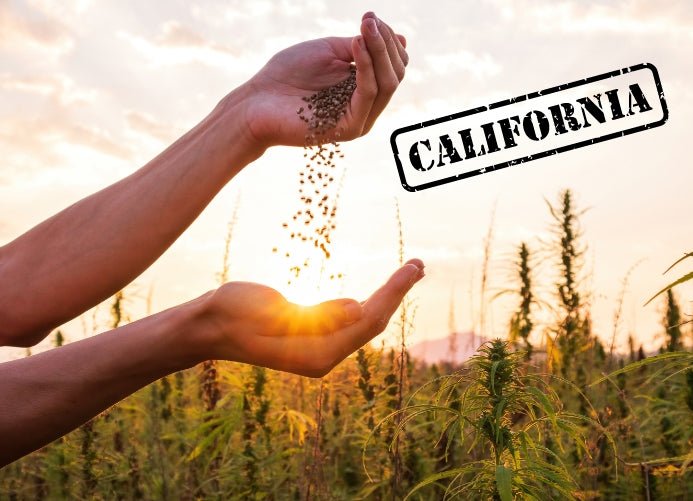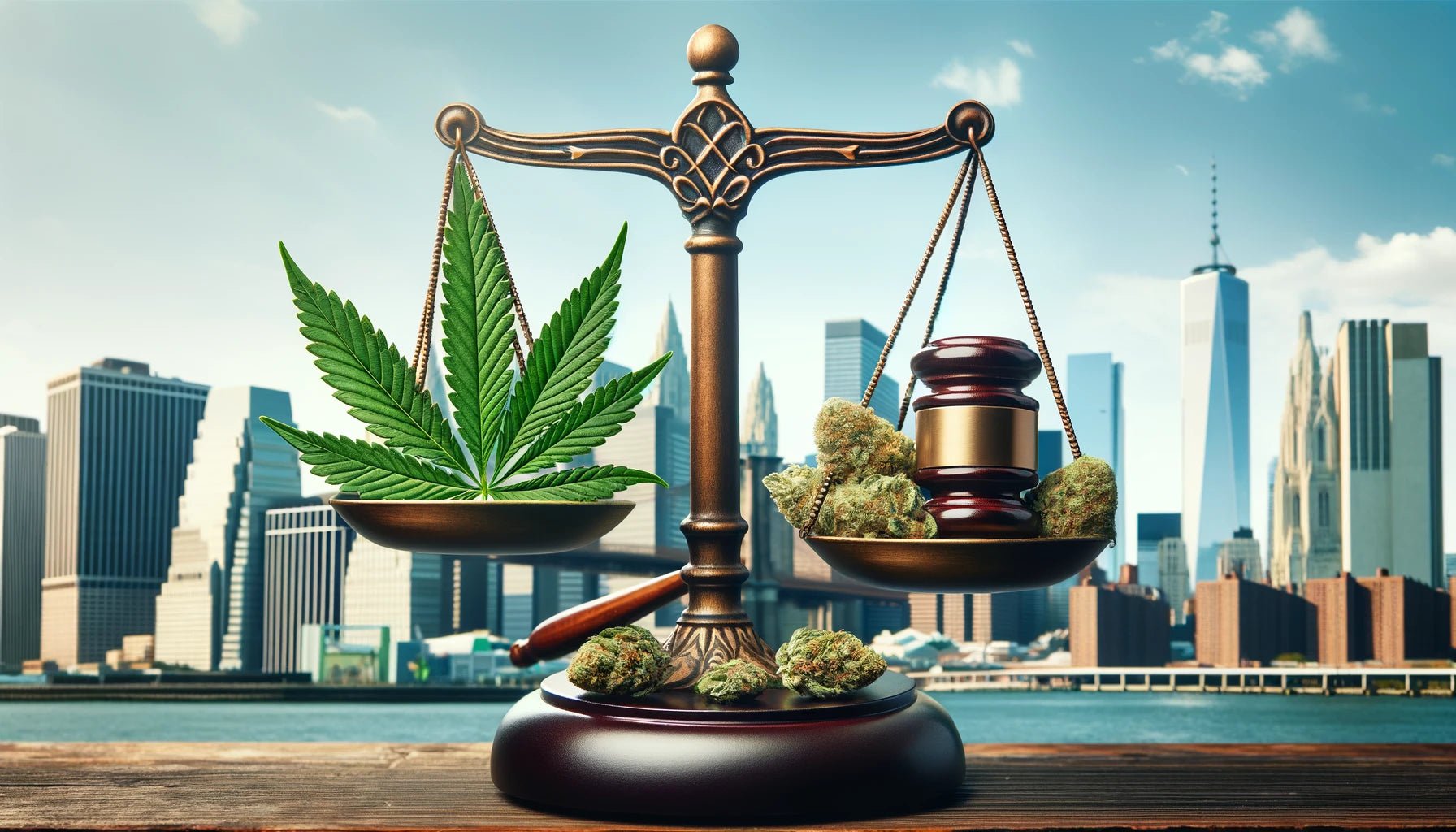The measure, which could've been far harsher, passed with a last-minute compromise saving the state's hemp industry from annihilation.Â

The well-worn phrase, "It's always darkest before the dawn," could be the unofficial rallying cry for the American hemp industry these days. With a seemingly unending series of attacks from the media, rival industries, and dubiously motivated politicians, it's nice to finally report on a win of sorts for the beleaguered yet resilient market sector.
Earlier this week, reports began to surface that the Florida State legislature was attempting to hold a last-second special session to vote on a highly controversial and polarizing bill that could potentially gut the young and burgeoning industry before it could fully realize its potential.
However, thankfully, several national and local media outlets are reporting that while state lawmakers did pass a bill imposing new regulations and restrictions governing the Florida hemp industry, the final version of the legislation will not be as detrimental to the hard-working small to medium-sized businesses comprising a large portion of the market as previously feared.
SB 1698, sponsored by Polk County Republican Colleen Burton, passed unanimously in the Senate by a 39-0 vote. That outcome occurred just a few hours after a more heated and contested vote approved the bill in the House by a margin of 64-48.
According to the final details of the bill, which received a last-minute amendment from the measure's House sponsor, Rep. Tommy Gregory (R-Manatee), that boosted serving and package sizes allowable under the statute from the previous 2 MG serving size/10 MG per package to a 5 MG serving size and a 50 MG per package limit, the approved measure bans the sale of all delta-8 THC products. Additionally, it prohibits businesses from "possessing hemp extract products that are considered attractive to children."
The legislation also bans all synthetic or synthesized hemp-derived cannabinoids in any amount. In addition, it prohibits the manufacture and sale of other intoxicating hemp derivatives (IHDs), such as delta-10 THC, HHC, THC-P, THC-O, THC-V, and the controversial THC-A flower products, popular in states where adult-use cannabis is still illegal.
While the outcome is by no means ideal for hemp advocates and stakeholders, it could've been much worse. One of those business owners is Nothing But Hemp's CEO, Steven Brown, who has closely monitored the issue and pending legislation over the past several weeks and months.
Following the vote on Wednesday, Brown said, "Overall, I am happy with the outcome. While I believe a 10 MG serving size makes more sense, I think that a 5 MG compromise is a responsible amount. Thankfully, they did not ban CBD, CBG, CBC, or CBN. This bill does not kill the industry and hopefully provides a good blueprint for any federal hemp legislation down the road."
"Overall, I am happy with the outcome. While I believe a 10 MG serving size makes more sense, I think that a 5 MG compromise is a responsible amount. Thankfully, they did not ban CBD, CBG, CBC, or CBN. This bill does not kill the industry and hopefully provides a good blueprint for any federal hemp legislation down the road."
- Nothing But Hemp's CEO, Steven Brown
However, not all members of the hemp community were as pleased with the final result. Throughout this lengthy and emotional legislative process over the past two sessions in the State capital of Tallahassee, several hemp industry professionals and many customers who've become reliant on products containing delta-8 THC attended every committee meeting, passionately testifying for lawmakers to reconsider the now-approved bans.
One of those invested individuals is Tallahassee resident Kassie Stuart, who, this past January, testified before lawmakers that, since her diagnosis of idiopathic genetic epilepsy at the age of 17, which results in intense seizures, the only medication that provides her with any relief are those products containing hemp-derived delta-8 THC. According to Stuart, she went from having a couple of seizures per day to experiencing only one or two a year once she began taking delta-8 regularly.
"I had my medical [marijuana] card for a little bit. It was helping, but it wasn't giving me the medical relief that I needed. When I was introduced to delta-8, it really helped me. I feel like if I'm 'spazzy' or 'seizey' or if I have a really bad headache, I can just hit my [vape] pen a couple of times or eat some edibles, and it goes away in a couple of minutes," she said at the January meeting.
"I had my medical [marijuana] card for a little bit. It was helping, but it wasn't giving me the medical relief that I needed. When I was introduced to delta-8, it really helped me. I feel like if I'm 'spazzy' or 'seizey' or if I have a really bad headache, I can just hit my [vape] pen a couple of times or eat some edibles, and it goes away in a couple of minutes."
- Tallahassee Resident Kassie Stuart
Echoing Stuart's sentiments, Broward County Democrat Hillary Cassel admonished her colleagues, scolding them for ignoring the passionate and, at times, desperate pleas from the public concerning the medical benefits that they will now be deprived of as a result of the bill's passage.
"It was the people. It was the mothers. It was the people living with chronic illnesses. Cancer. Lupus. And the list goes on and on talking about how these products changed their lives," she said following Wednesday's vote.
"It was the people. It was the mothers. It was the people living with chronic illnesses. Cancer. Lupus. And the list goes on and on talking about how these products changed their lives."
- Broward County Democrat Hillary Cassel
GOP Rep. Joel Rudman, a Panhandle-based physician, was even blunter in his response to the bill's approval, saying that it was important for the state to regulate — not ban— hemp-derived products.
"You could get Sushi at a gas station, but I certainly wouldn't recommend it," he said.
Leaders from the hemp industry also expressed disappointment and anger following the legislature's approval of the measure.
"Today, the Florida Legislature ignored the widespread opposition from the Florida hemp industry, consumers, and residents and instead voted to ban safe, lawful products that many individuals seek to improve their quality of life. Passing a bill like this could force consumers to purchase products from the unregulated market. The Florida Legislature is well on its way to eliminating several beneficial hemp and CBD products, ending Florida's hemp industry as we know it," said JJ Coombs, the co-founder and CEO of several Florida Hemp companies.
"Today, the Florida Legislature ignored the widespread opposition from the Florida hemp industry, consumers, and residents and instead voted to ban safe, lawful products that many individuals seek to improve their quality of life. Passing a bill like this could force consumers to purchase products from the unregulated market. The Florida Legislature is well on its way to eliminating several beneficial hemp and CBD products, ending Florida's hemp industry as we know it."
- JJ Coombs, the co-founder and CEO of several Florida Hemp companies
However, Coombs does not speak for most hemp business owners and consumers. While the crushing testimony from individuals like Kassie Stuart is heart-wrenching and unfair, in the real world of politics, compromises are the bad-tasting medicine parties from all perspectives must regrettably endure for the hope of gradual and continued progress.
Hopefully, this can be the start of a long-term and mutually beneficial solution for the hemp and cannabis industries to finally end this senseless civil war and begin a new and abundant coexistence.








































